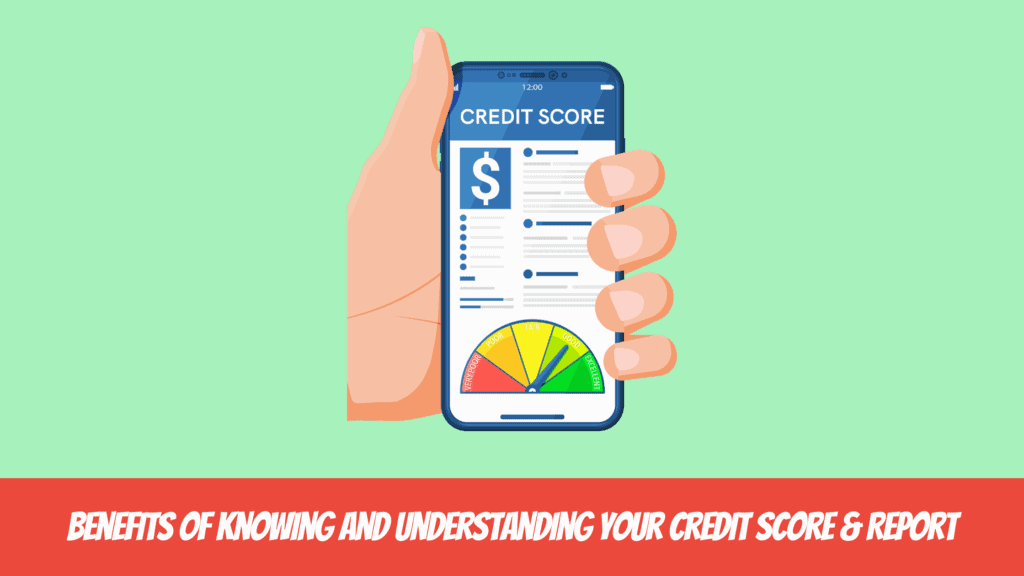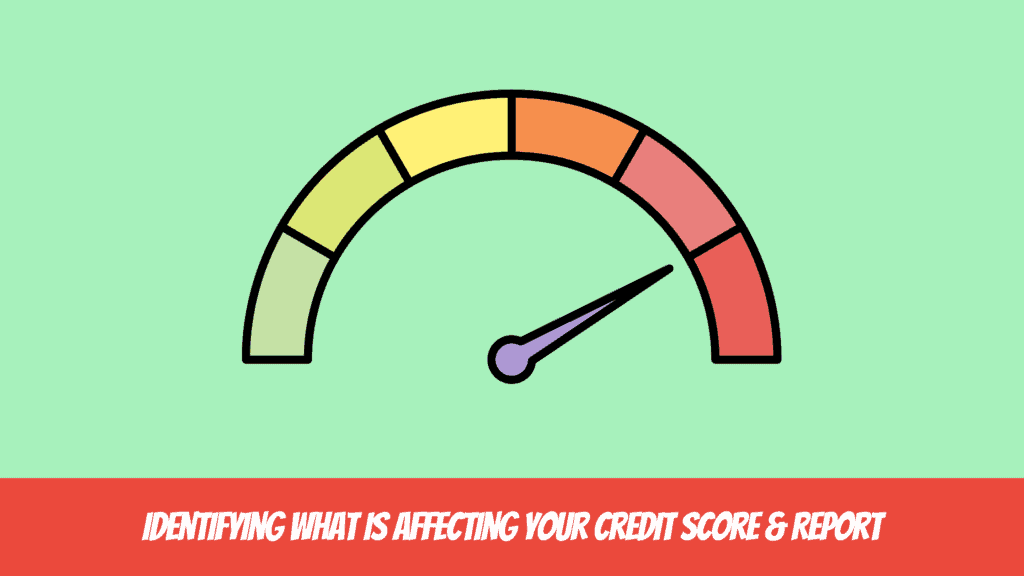It is important to understand and keep track of your credit score and report, as it can have a significant impact on your overall financial health.
Your credit score is used by lenders and creditors to determine how likely you are to pay back loans or debts in a timely manner.
A good credit score will help you save money on interest rates for car loans, mortgages, personal loans, and other loan products. It can also give you access to better lines of credit with lower fees.
On the other hand, a poor credit score could mean being denied certain types of financing or having higher interest rates for those that are approved.
Knowing what affects your credit score is essential in order to improve it over time and make sure that it remains healthy.
In this article we’ll discuss why monitoring your credit score & report is important, identify what factors affect it, and provide tips on how to monitor it regularly so that you can stay informed about its status.
Why it’s Important to Monitor Your Credit Score & Report

It is important to monitor your credit score and report in order to maintain good financial standing.
Your credit score is a three-digit number ranging from 300 to 850 which is used by lending institutions to determine if you are eligible for certain types of loans or credit cards, as well as the terms of the loan or card.
A higher credit score can give you access to better loans and terms, as well as lower interest rates.
A low credit score can also negatively impact your ability to get a loan or credit card, making it harder for you to cover essential expenses such as bills and rent.
It is also important to monitor your credit report in order to make sure that there are no errors or fraudulent activity occurring.
Your credit report includes information such as payment history, account balances, and open accounts.
A mistake on your credit report can significantly impact your credit score, so it is important to regularly review the contents of your report to ensure accuracy.
Benefits of Knowing and Understanding Your Credit Score & Report

Knowing and understanding your credit score and report is an important part of managing your personal finances and being in control of your financial well-being.
While a good credit score is essential for accessing loans and other forms of borrowing, it also plays a major role in providing access to better interest rates on certain products.
Having a good credit history can make all the difference when renting or purchasing real estate, applying for a job, or even when you are applying for insurance.
Understanding the factors that affect your credit score and knowing how to maintain good financial habits can help you meet your financial goals.
One of the main benefits of understanding your credit score and report is that it will allow you to monitor any changes in your financial situation.
It provides insight into why certain things may have happened in the past, such as missed payments or large debt balances.
You can use this information to develop strategies for improving your overall financial status, creating better spending habits, and budgeting accordingly.
Knowing what affects your credit score allows you to recognize potential areas for improvement that could benefit you in the future.
Identifying What is Affecting Your Credit Score & Report

It’s important to understand the factors that go into making up your credit score, as well as what is not included in your credit report.
Knowing this information can help you figure out how to improve your score and avoid any unnecessary negative impacts on it.
Analyze Your Spending Habits
The first step in identifying what is affecting your credit score and report is to analyze your spending habits.
Take a look at where you are spending the most money, such as regular purchases for groceries or bills, and see if there are any areas where you could be cutting back. It’s also important to make sure that you are paying all of your bills on time.
Late payments can have a significant effect on your credit score. Additionally, consider eliminating or reducing unnecessary expenses that don’t really benefit you financially in the long run, such as dining out or buying expensive items that don’t really add value to your life.
Learn the Different Types of Credit Accounts That Make Up Your Credit History
Your credit history includes several different types of accounts, including revolving debt (such as credit cards), installment loans (such as car loans), mortgages, and more.
Each of these account types has its own set of rules when it comes to impacting your credit score — for example, having open revolving debt accounts can hurt your score if they are maxed out but having open installment accounts can actually help it by demonstrating responsible borrowing behavior over time.
Understanding which type of account has what kind of impact on your score will better enable you to make smart decisions about how much debt you take on and how often you use certain kinds of accounts.
Address and Fix Outstanding Debts or Defaults on Loans or Credit Cards
If any unpaid loans, defaults, or credit card debts are appearing on your report, it is essential to take care of them immediately for the sake of both improving your financial health and enhancing your credit score.
These types of debt will continue accumulating interest until they have been fully paid off. Don’t wait – act now!
Reach out to lenders directly and try to negotiate a payment plan if necessary. This will show them that you are committed to paying off the amount owed while also helping keep their costs down by avoiding more costly legal action like collections proceedings.
Establish a Plan to Avoid Falling Behind on Payment Due Dates
Falling behind on payment due dates can have serious consequences for both your credit score and overall financial well-being — so it’s important for you to establish a plan for staying ahead of payment deadlines in order to avoid any potential pitfalls down the road.
Consider setting reminders for yourself about upcoming due dates using calendar apps or email notifications so that you always know when something needs paying before it slips through the cracks.
Try setting aside part of each paycheck into an emergency fund just in case life throws an unexpected expense into the mix at some point down the line so that it won’t interfere with necessary payments like rent or mortgage payments that need taking care of regularly each month regardless of other factors going on at the same time.
How to Monitor and Check your Credit Score & Report Regularly

Set Up a Free Account with a Financial Awareness Site
Setting up a free account with a financial awareness site, such as Experian or Equifax, is an important way to view your current credit score & report on a monthly basis.
This will make it easier to keep track of any changes that might have occurred and also help you stay informed of your financial standing.
Taking advantage of these services can also create more opportunities for managing your overall financial picture more effectively, such as providing personalized tips and advice tailored to your profile.
Request and Review a Copy of Your Annual Credit Reports
The next step in monitoring your credit score and report regularly is to request and review a copy of your annual credit reports from the three major U.S. credit bureaus: TransUnion, Experian, and Equifax.
Each bureau collects information on different aspects of an individual’s financial history. Therefore, it’s important to have all three in order to get a complete overview of one’s entire financial background.
It also helps to discover any discrepancies or mistakes which could be causing hindrances in one’s overall credit rating score.
Contact the Creditors Reporting Negatively on Your Profile Immediately
If any discrepancies or mistakes are found when reviewing the reports from the bureaus, it is essential to contact the creditors reporting negatively on the profile immediately so that they can be rectified as soon as possible.
This will not only prevent further damage to one’s credit score but can also improve their overall rating if certain items are reported incorrectly or out-of-date information is removed from the report altogether.
Understand Which Factors Have a Positive and Negative Effect on your Overall Score
Understanding which factors have both positive and negative effects on one’s overall credit score is key for ensuring proper management over time.
This includes activities such as paying down loans or debts on time, avoiding unnecessary new debt applications, etc.
Monitoring changes in interest rates periodically can help determine if any adjustments need to be made with existing accounts in order to keep them current and in good standing with lenders/creditors.
Check for Pre-Approved Loan Offers
Checking for preapproved loan offers can often signify an increase in one’s overall rating if one meets certain criteria.
These offers are typically based on existing account history with lenders/creditors but may be extended when favorable conditions exist (e.g., larger deposits or low balance ratios).
Therefore keeping track of such offers is beneficial for obtaining better interest rates during future loan applications and other related transactions.
Gather Multiple Free Online Resources
Lastly, it is important to gather multiple free online resources offering tips and advice for improving one’s credit score & report.
This includes blogs written by professionals in the industry who provide detailed insights into how credit scores & reports work along with additional methods for increasing ratings over time (e.g., financial planning tools and calculators).
Also, seeking out professional advice from certified advisors can further assist individuals who are unfamiliar with all aspects involved with maintaining a healthy overall profile while still striving towards their long-term goals financially speaking
Verdict
It is important to keep track of your credit score and report in order to ensure that you have access to better lines of credit with lower fees.
Knowing what affects your credit score can help you make the necessary changes over time so that it remains healthy.
By monitoring your credit score & report regularly, you will be able to stay informed about its status and identify any discrepancies or inaccuracies quickly.
With this knowledge, you’ll be well-equipped to take control of your financial health and make smart decisions when it comes to managing debt and improving your overall financial well-being.
